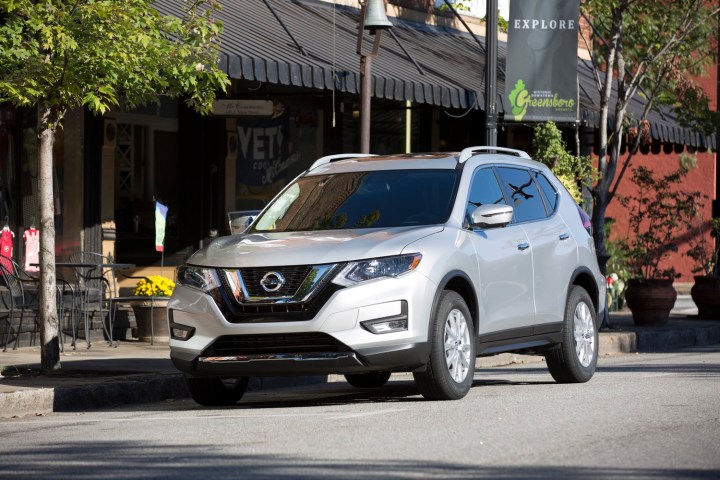
ProPilot Assist launches on the Rogue crossover, which is currently Nissan’s bestselling model. Nissan claims the system will automatically keep a car centered in its lane, maintain a set speed and following distance to the car ahead, and navigate stop-and-go traffic on highways (as long as the driver stays in one lane). However, Nissan views ProPilot Assist as a driver aid, not a fully autonomous system.
The system uses a forward-facing camera and radar sensors, plus an electronic control module that allows it to manipulate the throttle, brakes, and steering. The driver presses a ProPilot Assist button on the steering wheel and sets the adaptive cruise control to activate it. Nissan says the system won’t work in inclement weather because it may not be able to detect lane markings. Any control inputs made by the driver override ProPilot Assist’s automated inputs.
ProPilot Assist will be available on the 2018 Nissan Rogue SL model with the optional Platinum Package. The SL is the most expensive of the three Rogue trim levels, but Nissan expects cars with the system to sell for under $35,000. The 2018 Rogue hits showrooms later this month.
The next U.S.-market model to get ProPilot Assist will be the 2018 Nissan Leaf, which goes on sale in January. The long-awaited redesign of the bestselling electric car in history is also expected to bring greater range in order to make the Leaf more competitive with a new crop of rivals. Nissan ultimately plans to make ProPilot Assist available on 10 models globally by 2020, including some from partners Renault and Mitsubishi.
Nissan plans to continue introducing more advanced assist systems until it reaches full autonomy. Within two years, the automaker wants to add “multi-lane highway driving” capabilities, followed by city-driving capabilities within four years. Given the uncertain regulatory environment and the newness of the technology, it makes sense to do a gradual rollout. But Nissan will have to be careful to educate its customers about the limitations of ProPilot Assist, so that they don’t confuse it with the fully autonomous systems so many automakers claim are just over the horizon.


